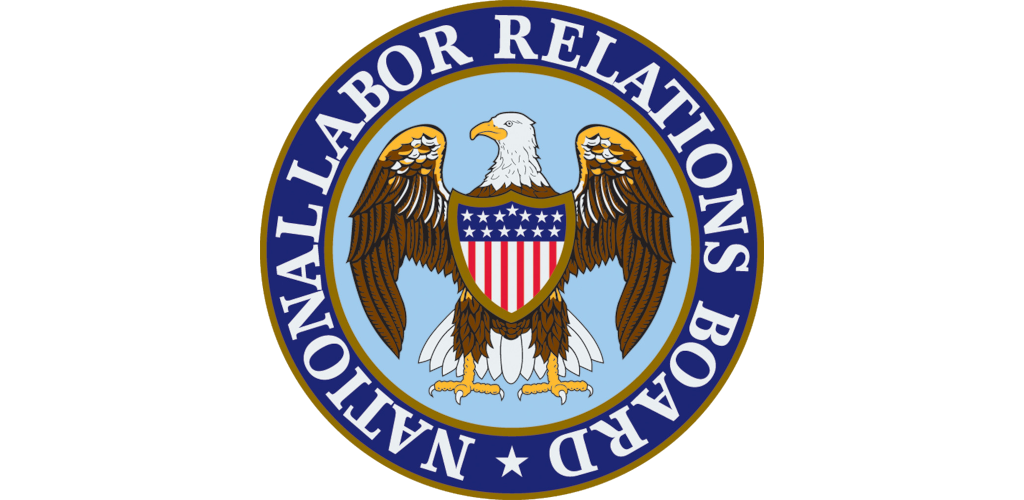Quick Hits
- The NLRB unveiled a final rule that rescinds the Board’s 2020 rule and returns the Board to its blocking charge policy, voluntary recognition process, and aligns union recognition for construction industry employers.
- The rule will take effect on September 30, 2024, and apply to cases filed after that date.
The NLRB unveiled its “Fair Choice-Employee Voice Final Rule,” which the agency said will make three key changes: restoring the “blocking charge policy, voluntary recognition of a union, and construction industry bargaining relationships.”
The rule, which will be formally published in the Federal Register on August 1, 2024, largely follows the proposed rule released in November 2022. The final rule rescinds the Board’s prior rule adopted on April 1, 2020.
Final Rule
Return to ‘Blocking Charge’ Policy
The new final rule returns to the prior policy under which regional directors “delay the processing of an election petition at the request of a party who has filed” an unfair labor practice (ULP) charge alleging that the employer has interfered with employees’ “free choice in an election,” known as a “blocking charge,” so long as “that the party simultaneously files an adequate offer of proof and agrees to promptly make its witnesses available.”
Under the 2020 rule, regional directors would hold elections even if a blocking charge had been filed and delay certification of the results until after the election. However, the Board said this often required “regional directors to conduct, and employees to vote in, elections in a coercive atmosphere that interferes with employee free choice.”
Return to Voluntary Recognition
Under the new final rule, once an employer voluntarily recognizes a union as an exclusive bargaining representative “based on a showing of the union’s majority status,” there will be no union election for a “reasonable period of time,” at least six months, to allow for collective bargaining. The rule eliminates the “notice-and-election procedure” that the Board first adopted in a 2007 decision and then re-established in the 2020 rule, in which there was a forty-five-day window following voluntary recognition to file a petition for an election. In the new final rule, the Board characterized that approach as treating “voluntary recognition [as] inherently suspect with respect to employee free choice.”
Parity for the Construction Industry
The final rule rescinds the rules “governing the application of the voluntary recognition bar and contract bar in the construction industry” in an effort to create parity with union representation in the construction industry and other industries. Section 8(f) of the National Labor Relations Act (NLRA) provides an alternative way for construction employers to voluntarily recognize a union as a bargaining representative.
In the final rule, the Board stated that “there is no statutory basis to deprive unions representing construction employees from utilizing the same procedure under Section 9(a) [of the NLRA] to obtain voluntary recognition—and its attendant benefits—that is available to all other unions.” This change will allow construction unions to gain voluntary recognition as the bargaining representative under Section 9(a), which would protect the union’s long-term representative status. That represents a major change for construction employers accustomed to recognition under Section 8(f) in which the union’s representative status does not survive a contract’s expiration.
Dissent
Member Marvin Kaplan dissented from the new rule, stating it is unnecessary and contributes to uncertainty for stakeholders. The majority “rescind[ed] [the rule] not because they must, but because they can,” he argued. Member Kaplan argued that the rule improperly prioritizes the interests of unions over that of employees in making a free or fair choice for representation. The revised rule permits unions to unfairly delay elections while they build support by filing unfair labor practice charges claiming coercive conditions, Member Kaplan said.
Member Kaplan further argued that it is an “open question” as to whether the Board’s rule change can withstand scrutiny in the courts, following the June 2024 Supreme Court of the United States overturning of deference to federal agency rulemaking in the June 2024 Loper Bright Enterprises v. Raimondo decision.
Next Steps
The final rule will be formally published in the Federal Register on August 1, 2024, and will go into effect on September 30, 2024. It will only apply to labor cases filed after that date.
Ogletree Deakins will continue to monitor developments and will provide updates on the Construction and Traditional Labor Relations blogs.
Follow and Subscribe
LinkedIn | Instagram | Webinars | Podcasts
“Ogletree Deakins has experienced professionals in all areas of labour and employment law who provide efficient, client-focused service. We represent employers of all industries and sizes, from small businesses to Fortune 50 companies.”
Please visit the firm link to site






